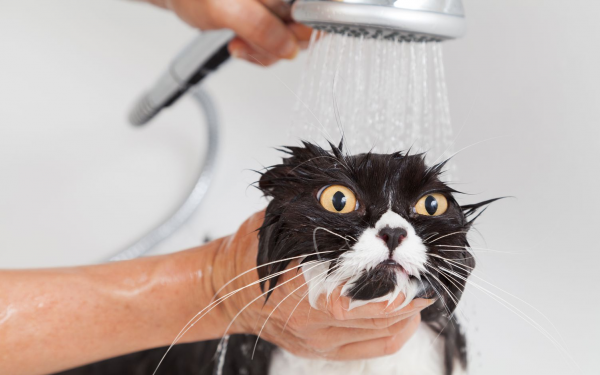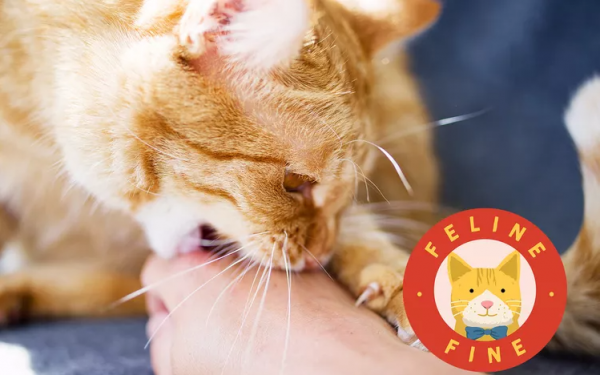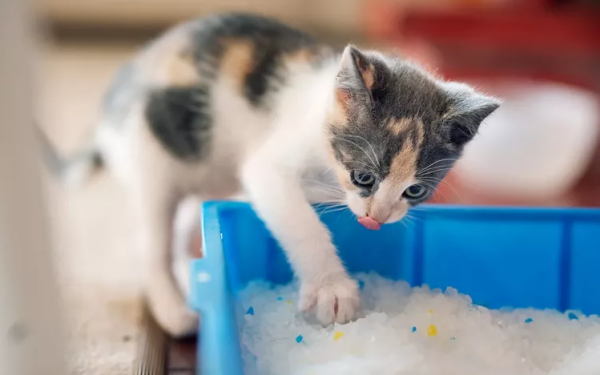Indoor vs. Outdoor Cats: Should You Let Your Kitty Roam?
Cats have a strong desire for outdoor exploration, often eagerly waiting by doors or expressing discontent by yowling at windows when unable to go outside. However, the safety of outdoor roaming poses a question. The debate over whether cats should be kept indoors or allowed outdoors has valid points on both sides. The environment in which your cat lives can significantly impact their behavior, health, and lifespan. It's important to weigh these factors carefully before deciding whether to allow your cat outdoor access.
:max_bytes(150000):strip_icc():format(webp)/persian-cat-walking-ledge-660545539-2000-1b273032773c4ea99268798d401bb493.jpg)
Will My Cat’s Behavior Change if He Goes Outdoors?
Certainly! Here's a paraphrased version of the paragraph:
"It's achievable! Cats permitted outdoors may exhibit fewer behavioral issues such as urinating outside the litter box and engaging in aggressive behaviors towards household members. International Cat Care suggests that such actions could stem from boredom and frustration. Additionally, outdoor cats are less inclined to scratch furniture as they satisfy their clawing instincts on trees and other outdoor objects."
Does That Mean I Need to Let My Indoor Cat Roam Outside?
Certainly! Here's a paraphrased version of the paragraph:
It's possible to satisfy the stimulation needs of indoor cats without them prowling after neighborhood birds. According to experts from the Animal Humane Society in Golden Valley, Minnesota, creating a stimulating indoor environment is key. Cats require opportunities to climb, scratch, hide, and jump, and there are numerous ways to enhance their indoor surroundings.
To keep indoor cats engaged, offer toys, a scratching post, and a cat tower with hiding spots. Providing a window seat or perch allows cats to observe outdoor activity, and placing a bird or squirrel feeder nearby can provide endless entertainment.
Additionally, regular interactive play sessions are crucial for indoor cats. Not only do these sessions offer physical exercise, but they also foster a strong bond between you and your feline companion.

The lifestyle of your feline companion impacts their susceptibility to specific health issues, with variations depending on whether they primarily reside indoors or outdoors. Indoor cats tend to be less active, heightening their vulnerability to conditions such as diabetes, obesity, arthritis, and heart disease, as explained by Douglas Payne, DVM, the medical director of VCA East Penn Animal Hospital in Emmaus, Pennsylvania. Conversely, cats that venture outdoors face a distinct array of risks due to exposure to environmental elements, interaction with other animals, and encounters with people.
Heatstroke and hypothermia Bacterial, viral and fungal infections Wounds from fighting with other animals Contagious diseases such as rabies, feline leukemia, and feline immunodeficiency virus (FIV) Parasites such as fleas, ticks, ringworm, and roundworms Trauma from being hit by a car or abused by people Poisoning from ingesting toxic chemicals like antifreeze and rat poison What About Lifespan? Do Indoor Cats Live Longer?If your feline friend likes to roam free, you may want to brace yourself. Because outdoor cats are exposed to more dangers than indoor cats, their life expectancy is greatly reduced. According to UC Davis School of Veterinary Medicine, indoor cats live an average of 10 to 15 years while outdoor cats typically live only 2 to 5 years.
Are There Ways to Keep My Cat Safe When He’s Outdoors?
In light of the dangers cats encounter outdoors, a conscientious cat guardian such as yourself should explore methods to enhance your feline's safety. The Animal Humane Society offers several recommendations to mitigate potential risks. These include:
1. Ensuring your cat is microchipped to aid in their identification if they are found by animal control or brought to a veterinary facility.
2. Providing year-round flea and tick prevention treatment.
3. Making an effort to bring your cat indoors before nightfall.
4. Keeping your cat's vaccinations current.
5. Considering pet insurance, particularly as outdoor cats may necessitate more frequent veterinary care.

So, Is It OK to Let My Cat Outside?
Some people believe that letting cats go outside gives them a better quality of life. But most experts agree that staying indoors is the healthier choice for cats.
If you want to give your cat the best of both worlds, you can try leash-training your kitty with a specially designed cat harness to help keep them safe. You can also make or purchase a cat patio (catio)—an enclosed area that lets cats get fresh air and sunshine without the risks of being entirely free.
"Ultimately, it's really up to you to weigh the advantages and disadvantages of letting your cat go outside," Payne says. "Talk to your veterinarian for help evaluating what is safest and in the best interest of your pet."















